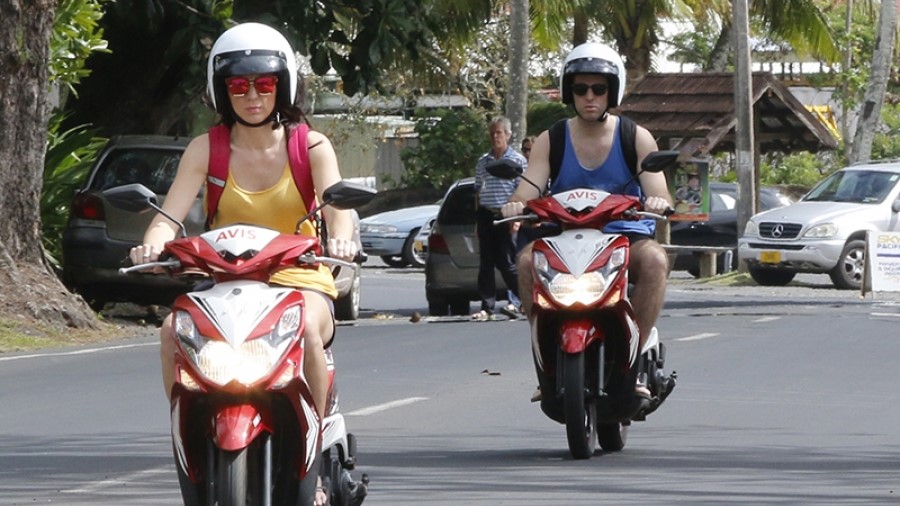Over 1100 Kiwi tourists visited Cooks in a week
Thursday 3 February 2022 | Written by Caleb Fotheringham | Published in Economy, National

PHOTO: CI NEWS. 17111636
Since the country reopened its border to travellers from New Zealand the flow of visitors into the country has run smoothly, says Te Marae Ora Ministry of Health.
Figures for the period from 24 to 30 January, show 1529 people came into the country; 1113 were visitors, 377 were Cook Islanders or permanent residents and 39 were resident permit holders.
Seventy-six of the travellers – Cook Islanders – were required to go into home or managed quarantine, because although they had returned negative Covid tests before returning, they are unvaccinated or else had children not old enough to be vaccinated prior to departure. All 76 were undergoing daily testing and all returned negative tests.
Most of the travellers remained on Rarotonga, but 58 went on to the Pa Enua; the majority 42, went to Aitutaki. Six went to Atiu, four to Mangaia, three to Manihiki and one each to Mauke and Rakahanga.
Te Marae Ora spokesperson Jaewynn McKay said: “From this Monday, people eligible to be vaccinated but who aren’t and who are 18 years of age and over, will no longer be able to enter or leave the country on an Air New Zealand international service operated by an Air New Zealand aircraft because Air New Zealand – like many other airlines around the world – will no longer carry them.”
This includes those passengers ticketed on a partner airline, including codeshare flight numbers operated by Air New Zealand, e.g., customer is ticketed SQ4269 operated by NZ946 AKL-RAR.
However, Air New Zealand has provided an exemption on medical grounds to the “no fly no jab” policy, McKay added.
The granting of the medical exemption will be assessed on a “case by case” basis.
Part of that assessment will look at whether the patient could’ve been vaccinated, that is, was vaccination “practically achievable” between diagnosis of the medical condition and the proposed flight on Air New Zealand.
McKay said: “The decision for the issuing of a medical exemption will not be made by the Te Marae Ora, but by a third party nominated by Air New Zealand.”












































